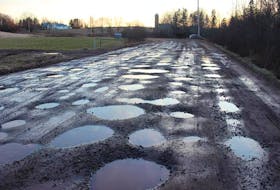This federal election campaign is providing more proof of the inability of our current electoral system to deliver the “will of the people” in our increasingly complicated world.
For decades it’s been assumed that the will of the people can be achieved by having them exercise their democratic voting rights every few years. The problem is that the results produced lately by our electoral system only satisfies the “will” of a minority of the population. For example, in the previous 2015 federal election, the Liberals under Trudeau gained majority government status with support from just one in four registered voters.
Also, in the 2017 Nova Scotia provincial election, McNeil’s Liberal party was victorious with just one in five of registered voters voting for them, while they still managed to win majority government status, and all the power that came with it.
It’s outrageous that the shots are being called on critical national issues, such as climate change, by a party representing just one quarter of eligible voters.
Perhaps most damaging to the nation’s future development is that governing parties feel no obligation to recognise the “wills” of those who placed their votes elsewhere; partisan behaviour lingers well after the election event, and decision-making that is fundamental to a community’s future development is largely left to party insiders.
As a result, the bulk of the “human capital” created in the nation’s population over the years through education, training and economy-building experience is not fully exploited to meet the needs of the broader community.
Two things have to happen to remedy this situation.
Firstly, there needs to be broader representation in our parliament of sitting members who represent more diverse views on what constitutes the “will of the people”. These views deserve to be counted, since they come from the majority of our “commonwealth”, this being the traditional term for a political community founded for the common good.
As things currently stand, our policy options are typically based on the differing “ideologies” of the main political parties competing for votes.
The three main federal parties are from “left” to “right” on the political spectrum, the NDP, Liberal and Conservative parties. We begin on the left with a strong emphasis on social justice issues moving to the right characterised by decreasing government involvement and more individual self-reliance to make it through life.
Interestingly, the political terms "left" and "right" were coined during the French Revolution, referring to the seating arrangement in the French political assembly: those who sat on the left generally opposed the monarchy and supported the revolution, while those on the right were supportive of the traditional institutions of the old regime, and not surprisingly many of them succumbed to Madame Guillotine in that period!
More recently, “single issue” parties are emerging, such as the Greens and the BQ and PPC, and more will follow that will speak for growing slices of the electorate.
The second step to meeting the will of the larger population will be the replacement of “combative” partisan behaviour by “collaborative” behaviour on the political scene.
Assuming a proportional representation scenario, there will be a growing incentive for parties to collaborate with each other. Solutions that satisfy a broader segment of the population will be fashioned in this way because they make sense.
Finally, have you taken a look at the many policies and promises in the six party platforms outlined in the past couple of weeks? They are in the hundreds and break down into carbon tax; childcare; climate change; deficits; guns; health care; housing; immigration; indigenous; jobs: manufacturing; NAFTA; pipelines; small business; taxes; technology; transportation.
Are we so naive to believe that one party alone has all the right answers in each and every category?
Clearly not...but buried in the hundreds of proposed options are potential combinations that through serious thought and collaboration can yield solutions that would better satisfy the greater will of the general population, and be more effective, if we just make it possible for our elected leaders to work together in a non-partisan way.
That is why I believe our democracy is in transition, because frankly we have no choice.
Alan Walter is a retired professional engineer living in Oxford. He was born in Wales and worked in Halifax. He spends much of his time in Oxford, where he operates a small farm. He can be reached at [email protected].

![['Did You Know That with Alan Walter']](https://saltwire.imgix.net/did-you-know-that-with-alan-walter-3009037.jpg?cs=srgb&fit=crop&h=568&w=847&dpr=1&auto=enhance%2Ccompress%2Cformat)







